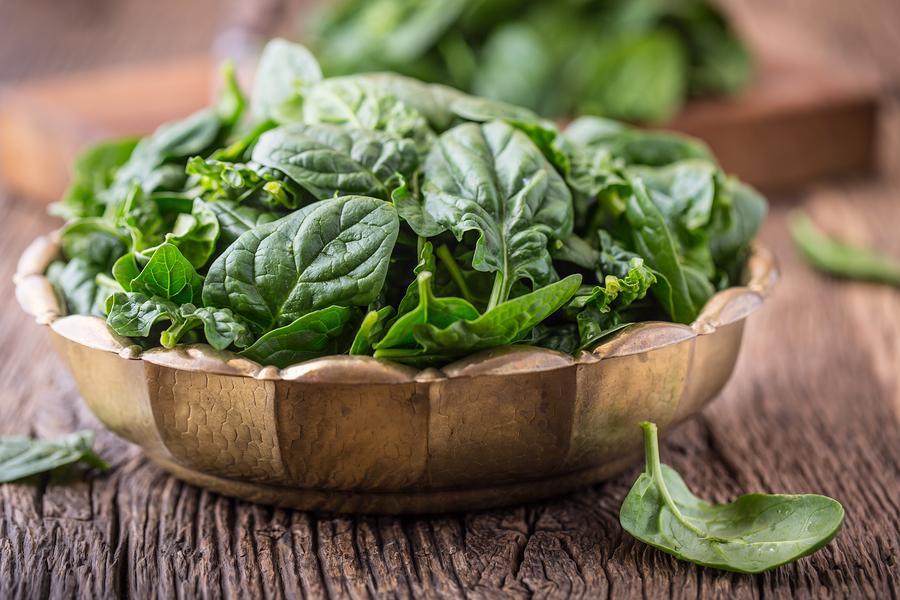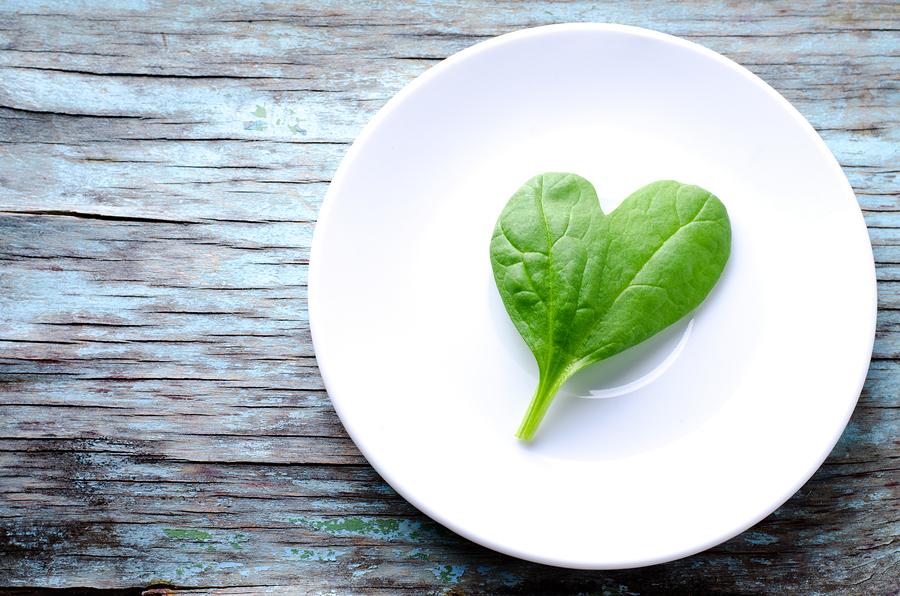
Spinach is a rich source of many different vitamins and minerals, and it is this abundance of health boosting properties that surely makes spinach deserving of the superfood title!
Today we are going to take a look at the nutritional profile of spinach and discuss how including it in your diet regularly can contribute to overall health and wellness. When you make it a habit to do so regularly you will be giving your body a much appreciated boost! So, which vitamins and minerals can you expect to enjoy with spinach?
Vitamin A
Spinach is a rich source of carotenoids, which are turned into vitamin A in the body. These carotenoids are great for tackling free radical damage in the body, and vitamin A is known to be beneficial for vision, as well as supporting the health of the immune system and the reproductive system.
Half a cup of raw spinach contains approximately 1,400 micrograms of vitamin A, which is just over the recommended amount that you should aim to include in your diet each day.
Vitamin C
Vitamin C is important for the health of your cells, and also helps to support the health of your blood vessels, bones and skin. Having an ample amount of vitamin C in the body is also very useful for helping wounds to heal properly.
Adults need to consume 40mg of vitamin C every day as the body doesn’t store it for later use. Half a cup of raw spinach contains approximately 4mg of this vitamin.
Vitamin E
This vitamin should be a key feature in your diet because not only is it a powerful antioxidant, but it also important for fertility, immunity and keeping your skin healthy. If you are frequently exposed to the sun then vitamin E can help to mitigate the damage caused by UV rays.
Although there is only a small amount of vitamin E in raw spinach, with just 0.3mg in a half cup, it can still contribute towards your vitamin E quota – especially if you eat it regularly!
Vitamin K
This vitamin plays an essential role when it comes to blood clotting, and also contributes to the development of strong bones and cell regeneration. If you find that you bruise easily or that you bleed excessively when you get a cut then you may have a vitamin K deficiency.
Eating just half a cup of raw spinach will provide you with almost all of the vitamin K that you need each day!
Manganese
Manganese is a trace mineral used for collagen production and is essential for healthy skin and bones. Studies have also suggested that the presence of manganese can be beneficial for blood sugar control.
The average adult will have between 15mg and 20mg of manganese stored in their body at any one time. With 0.84mg of manganese in half a cup of raw spinach, you can easily keep these stores topped up by eating a serving of spinach every day.
Magnesium
Magnesium is quite important for the maintenance of healthy bone structures. It is an exciting fact that foods that are high in fiber are generally high in magnesium too.
There is approximately 12mg of magnesium in a half cup serving of raw spinach. The average person requires between 300mg and 400mg of magnesium each day.
Calcium
The marketing hype of the dairy industry has led us to falsely believe that we must get our calcium from dairy if we are to have healthy bones. The truth is that there are countless amazing plant based sources and it is possible to have completely healthy calcium levels without including dairy at all.
Although spinach does not contain a massive amount of calcium, with 30mg per half a cup of raw leaves, it can certainly be beneficial in large amounts.
Potassium
An adequate presence of potassium in the body is very beneficial when it comes to balancing fluid levels and maintaining muscle function. In order for potassium to effectively do its job, it is important to also have a healthy combination of calcium and sodium.
The official recommendation is that you consume 4,700mg of potassium each day. A half cup serving of raw spinach provides you with approximately 167mg of potassium.
Enjoying Spinach
A recent study determined that the best way to cook spinach in order to preserve the goodness within is to sauté it! However, steaming, boiling and cooking this leafy green in other ways will still deliver a burst of the aforementioned nutrients. Eating spinach raw is of course also a great choice – just be sure to always wash your leaves first!
It is worth keeping in mind that a half cup portion is a relatively small serving and you will generally include more than this in the recipes that you are creating. Therefore, the amount of vitamins and minerals mentioned in this article can be received in greater amounts by simply eating more spinach!
References
Related Posts
Cigarettes May Inhibit Inflammation Treatments
Axial spondyloarthritis, also known as AxSpa, is a chronic…








